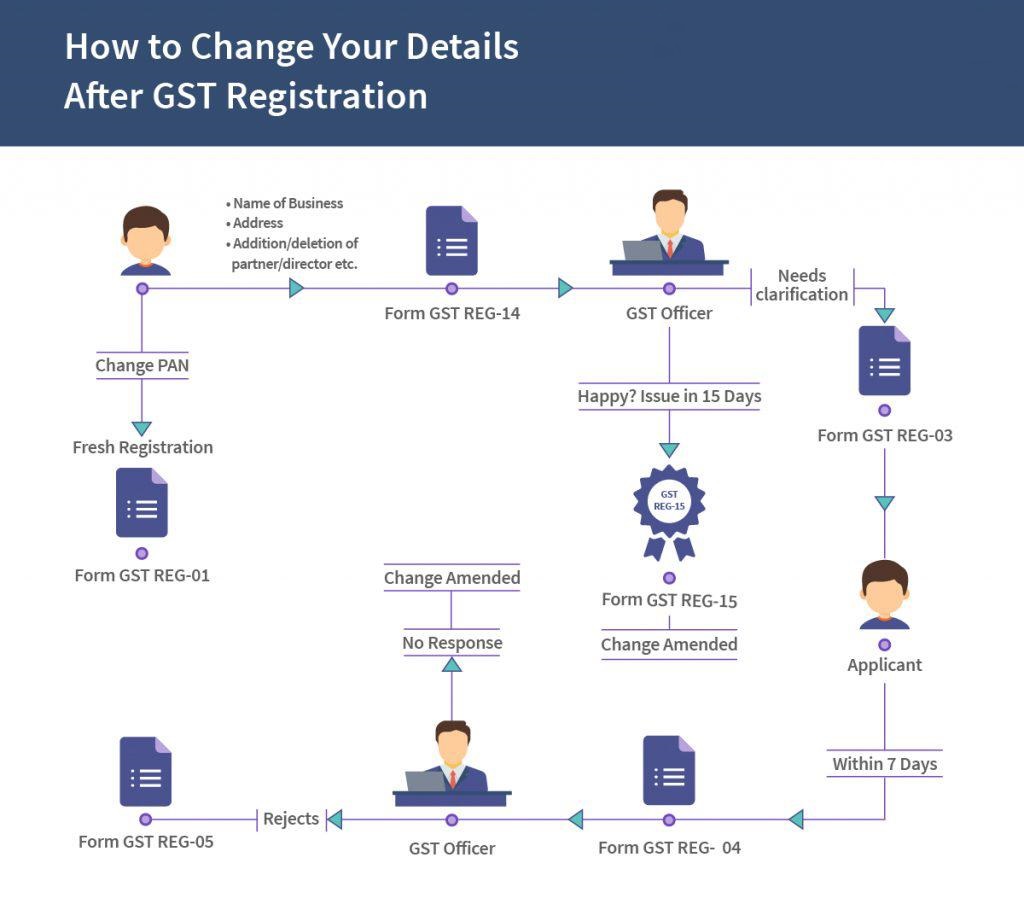
The Goods and Services Tax has been a major shakeup in the Indirect Taxation landscape of India. It has permanently changed the way the country handles consumption taxes. The GST regime is characterized by a comprehensive online system that tracks transactions all throughout the value chain.
This is done to make sure that there is no tax evasion and under-invoicing as was prevalent in the previous tax regime. Since the GST is mandated by law it is imperative that a business registers for the GST system under the GST Act.
You will find GST explained in greater detail at the official website of the GST Council. There are many reasons why a business should register for the GST, some of the important ones are listed below.
GST Act:
One of the biggest reasons why a business needs to register for the GST is the law itself. The GST Act specifies which businesses are required to register for GST. Therefore those businesses which fall under the purview of the Act are mandated to register under the Act.
A detailed FAQ and GST explained sections are available online for businesses to check and see whether they are required to register or not. Individuals who are classified as taxable persons under the GST include people who were registered under the previous tax acts, like VAT, Sales Tax, etc.
Those businesses whose turnover is over Rs. 40 lakhs in any financial year are also required to register under the GST Act. There are other aspects of the business which might require an entity to be registered as well.
Input Tax Credit:
The GST has changed many aspects of the indirect tax system, one of which is the way GST handles double taxation. Under the earlier tax regime, taxes would be charged in a way that would have a cascading effect.
Many taxes were charged on top of each other which resulted in double taxation and created an unnecessary expense for businesses, creating a lag on profits, especially for small businesses.
GST has drastically changed that scenario. Under the GST regime, every step a product passes through before it becomes a finished good is tracked and taxes are charged accordingly.
This shields the business as well as the consumer from over taxation and provides a transparent manner in which every transaction is tracked. When a tax is charged during the production process and added to the price, the distributor who purchases the product and pays the tax can claim an Input Tax Credit to nullify double taxation.
To claim this Input Tax Credit, the business needs to be registered under the GST Act. If a registered distributor purchases goods from an unregistered dealer, then the registered distributor needs to pay taxes themselves and will not be able to recover the money via ITC.
This is a very strong incentive for businesses to register and formalize themselves. The GST system was designed in this way to fast track the formalization of the Indian economy.
Formalization Of Business:
Nowadays, the formalization of business and business transparency are two big themes of doing business in India. And GST was brought in as a way to bring about that kind of transparency in the economy.
GST registration signifies that a business is bound by certain rules and regulations and keen on business transparency. This helps the business seem more reliable to outside suppliers, banks, financial institutions and other types of companies.
Whether a business wants to raise funds in the market or by taking on loans, it is much more likely to be trusted if they have GST registration as a mark of transparency and stability.
Many companies nowadays also do business exclusively with other businesses and suppliers who are GST registered, one of the reasons is that the GST system requires a set of complementary forms which need to be filed with the returns.
It is easier if the other party is a registered entity so that they can also file matching invoices that detail a particular transaction. This reduces hassles and creates a record of business activity.
Conclusion:
To conclude, the GST has been a major change in the way India does business and may look complicated at first glance. The introduction of the GST also has not been smooth due to the complexity of bringing in such a law.
But once you read the details of the GST system, you realize that there are a lot of benefits to registration as well as doing business with those companies and enterprises who are registered as well. More information and GST explained helplines are available online and through professionals to guide a business through the entire GST registration process.
This is why it is imperative that GST planning and creation of a new business go hand in hand.





